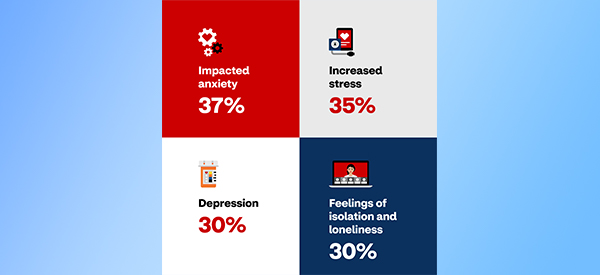
The COVID-19 global pandemic continues to cut a swath across the world, leaving death, chronic illness, and economic hardship in its wake. But some of the largest costs of the virus may not be immediately visible. In the long run, the mental health damage may eclipse the direct effects of the disease.
A new study from CVS Health provides some stark data in this area. The new “2021 Health Care Insights Study” is a wide-ranging report that covers responses from both consumers and healthcare providers. The report does contain many positive insights, such as the growth in both the demand and use for telehealth services. More than 3 out of 4 respondents indicated that they now pay more attention to their personal health in general, and half said that the stay-at-home restrictions actually helped them meet some of their health goals.
But then there’s the mental health aspect. In general, a third of the respondents indicated that their lives were disrupted by increased stress, anxiety, depression, and feelings of isolation and loneliness. According to the survey, people reported that their use of opioids, alcohol, and nicotine increased 10% to 21%.
Even if the majority of these people manage to recover on their own once the threat of the COVID infection diminishes, that still could mean that millions of people in the U.S. will be trying to cope with mental health issues. Half of the survey respondents said that they would be likely to seek out mental health services through virtual visits, and 94% of licensed clinical workers said that they have added virtual offerings.
While these are hopeful signs that telehealth and digital health services can help fill some of these needs, we’re likely to face an increased demand for mental health services in the near term.

